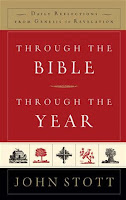
Romans 5:1-11
I still
remember the celebration and solidarity that the 1971 Super Bowl Chiefs brought
to the tense city of Kansas City. The heroes were white and black, native born
and immigrants. Our civic and racial divisions
were (momentarily) reconciled in the common celebration of a victorious team
who belonged and reflected us all.
The subtext
of Paul’s argument is that God has demonstrated his love by reconciling all of
humanity through the death and resurrection of the Messiah, his son. The church, in its common life, is to model
the kind of relations God wishes for the world. The church is made up of people
who are exchanging identities rooted in native land, blood and ideology for an
identity shaped and informed by the victory of God in Jesus. We are united by
the celebration of Jesus’ victory for us. Three times Paul states the basis of
our celebration or rejoicing (cf. boasting – 2:17, 23, 3:27):
1. We
rejoice in hope of future glory – our
true end (v.2)
2. We
rejoice in the reality of present suffering
– our normal means (v.3)
3. We
rejoice in God’s past victory of
reconciliation in Jesus (v. 6-11)
This comprehensive celebration, if practiced continually and
with understanding, will encourage the Church to experience the new humanity
that God is creating around Jesus. Let’s
consider how that can be.
5: 1-2
Instead of boasting in our heritage (Jewish, Greek, etc. -
Paul’s argument in chs. 2-4), we are invited to boast rather in God’s
accomplishment in Jesus. We have access
to a peace that his death makes possible.
We now stand in grace – an environment of costly and unmerited
love. The imagery is possibly of the
temple, where a worshipper is invited into the presence of God through the
atoning sacrifice of his offering. The
presence of God in the temple portends a future life of unbroken connection and
pleasure in God.
5:3-5
Our present and difficult experiences in life might make
such a celebration short-lived. So what
do we do? Paul places them in the
context of our guaranteed future – our unbroken fellowship and connection with
God – as an essential preparatory experience.
We need the testing of suffering to strengthen our character and hope
for the wait is often long and arduous. But God’s love in our hearts reassures
us that we are part of God’s future, new people.
5:6-11
The validation of God’s love is not merely experiential; it
is historical and rare. A person might
die for a good person but Jesus died for us when were sinners – separated and
separating from God. And if his death reconciled
us to God how much more will his life in us prepare us for the future. The contemplation of this should lead us to
rejoice in God.